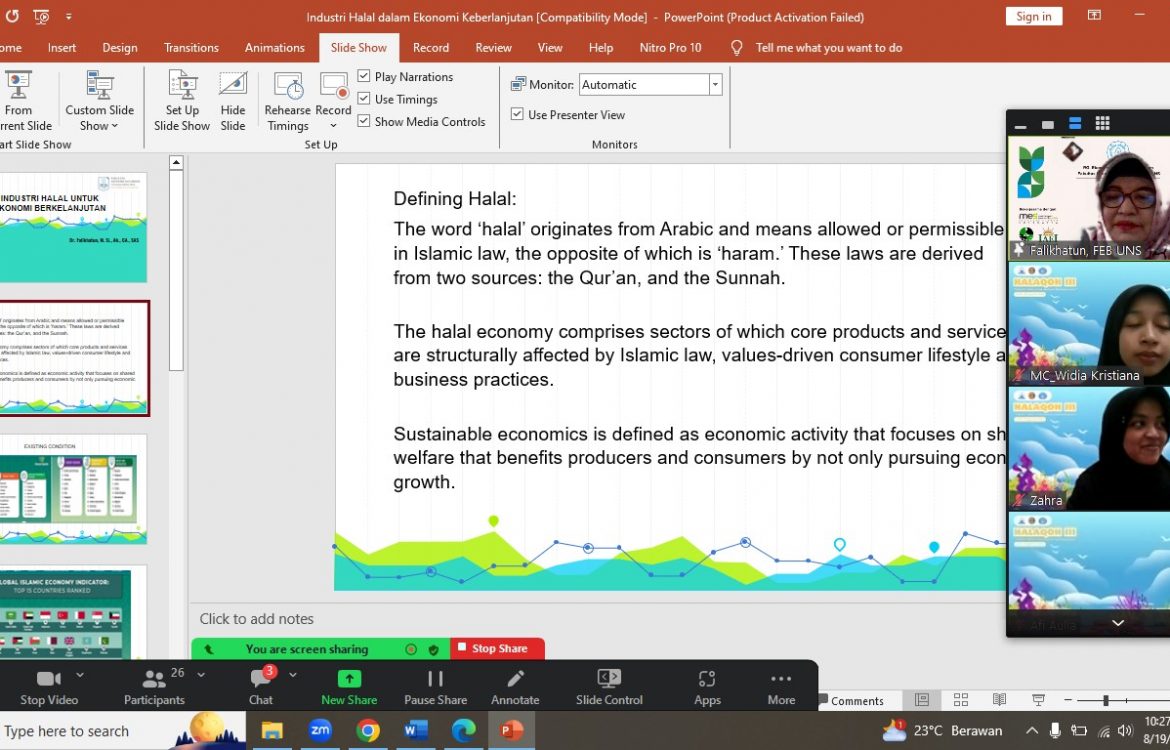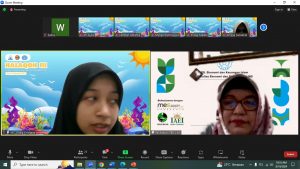
Islamic Economics and Finance Research Group at FEB UNS Discusses Halal Industry for Sustainable Economy at Islamic Economics Student Seminar
The Chair of the Islamic Economics and Finance Research Group (RG), Faculty of Economics and Business (FEB), Universitas Sebelas Maret (UNS) served as the keynote speaker at the Seminar (Halaqah) organized by the Islamic Economics Student Unit (KEI) of FEB UNS on Monday, August 19, 2024.
This seminar, themed “Halal Industry for a Sustainable Economy,” was conducted in collaboration with the Regional Board (PD) of the Sharia Economic Society (MES) of Surakarta, the Regional Executive Board of the Indonesian Association of Islamic Economists (DPW IAEI) Central Java Province, and the Regional Board of the Forum Alumni HMI Wati (PD Forhati) Solo Raya.
 The event, attended by a total of 37 students from the 2024 KEI FEB UNS board and members, featured Dr. Falikhatun, M.Si., Ak., SAS., the Chair of the Islamic Economics and Finance Research Group, as the main speaker.
The event, attended by a total of 37 students from the 2024 KEI FEB UNS board and members, featured Dr. Falikhatun, M.Si., Ak., SAS., the Chair of the Islamic Economics and Finance Research Group, as the main speaker.
During her speech, Dr. Falikhatun emphasized the significance of the halal industry in the development of a sustainable economy, particularly focusing on the circular economy model. This model aims to achieve economic growth while maintaining the value of products, materials, and resources in the economy for as long as possible, and pursuing a zero-waste agenda.
Dr. Falikhatun further explained that “to promote the halal industry—which includes Islamic Finance, Halal Food, Muslim Friendly Travel, Modest Fashion, Halal Pharmaceuticals and Cosmetics, and Halal Media & Recreation—several key strategies are needed. These include enhancing productivity and competitiveness, implementing and strengthening regulations, boosting halal brand awareness, and reinforcing financial and infrastructural support.”
The seminar is expected to bring inspiration and motivation to the students, especially the board and members of KEI, to delve deeper into Islamic economics concepts, particularly those related to the halal industry both in Indonesia and globally.
Additionally, in the long term, the seminar aims to motivate students to engage in developing the circular economy, which incorporates the 5R concept: reuse, reduce, recycle, repair, and recover. This concept seeks to ensure that waste or by-products are either transformed into new products or used as raw materials for other products, thereby minimizing economic resource wastage.

